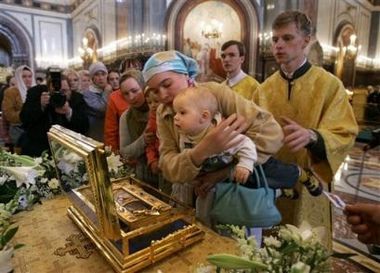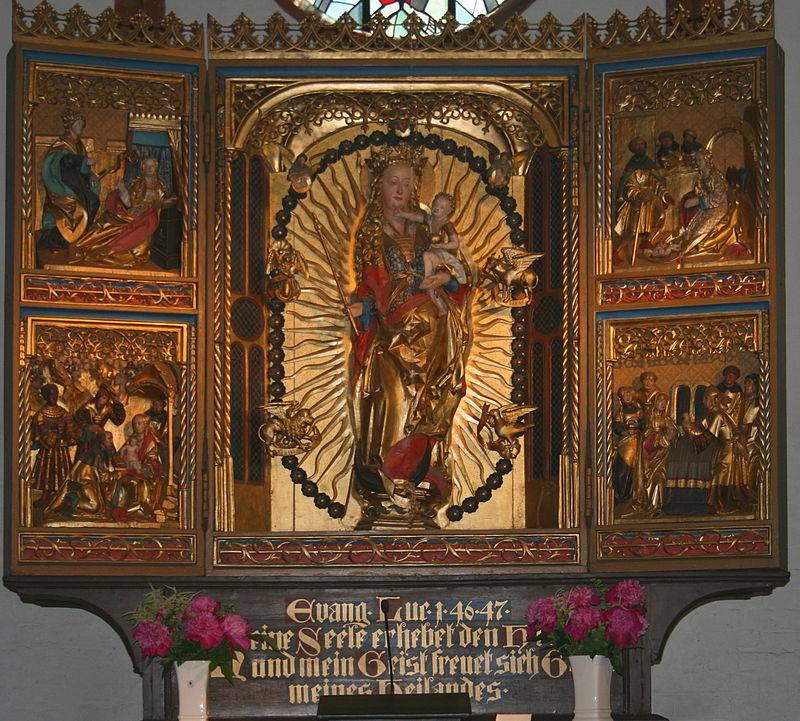
Don’t you know that your body is the temple of the Holy Spirit, which you have received from God, dwelling within you, and that you are not your own? You have been bought and paid for. Therefore glorify God in your body. (1 Cor. 6:19-20)
“Don’t you know?” St. Paul asks the Christians in Corinth. “Your body is the temple of the Holy Spirit,” he tells them. He is picking up on what he has just told them about taking each other to court. “What you are doing is inappropriate for anyone who has been washed-illuminated-sanctified in the Name of Christ and by the Spirit of God.”
“Illumination” or “enlightenment” was an early name for baptism. Plunging into the baptismal water, the new Christian is enlightened by the light of Christ, the light that filled the darkness of Hell and destroyed the realms of darkness and death. The new Christian is also sanctified, anointed by the Holy Spirit. Literally anointed. Not just metaphorically. The newly baptized was liberally anointed with chrism, the perfumed and sanctified oil that conferred the gift of the Holy Spirit. This sanctifying oil glistened in the candlelight by which those present at the baptism could see.
The body of the new Christian belongs to God as much as the new Christian’s soul does. Baptism is not just a spiritual experience. It is a physical experience that changes a person’s physical situation as much as it changes a person’s spiritual situation. Because a person’s body is washed and anointed, that body becomes a holy thing to be treated with respect, i.e. venerated and honored. Because a body is a holy thing, to be treated with respect and honor, it is inappropriate to treat the body in any disrespectful way. Some of those inappropriate, disrespectful ways involve sex but there are other inappropriate, disrespectful behaviors that do not involve sex.
Material things–including the bodies of the baptized but any material thing–can communicate the presence and power of God. Material things can communicate the power and presence of the Holy Spirit. One of the respectful, honorable ways we treat these sanctified material things is to kiss them.
Even after the baptized person dies, the body is still a holy thing and the remains–i.e. the relics–of the person are venerated and honored. The relics of the baptized dead are kissed and honored with incense, whether the person was a heroic saint or not. The baptized dead are saints by virtue of their baptism and their relics are treated accordingly.
Treating a person in a respectful manner during a sexual encounter goes hand-in-hand with venerating the relics of the saints. Bodies are important. They are holy. They are washed-illuminated-sanctified. Far from being irrelevant to ultimate salvation, the body is the means whereby God is glorified.

